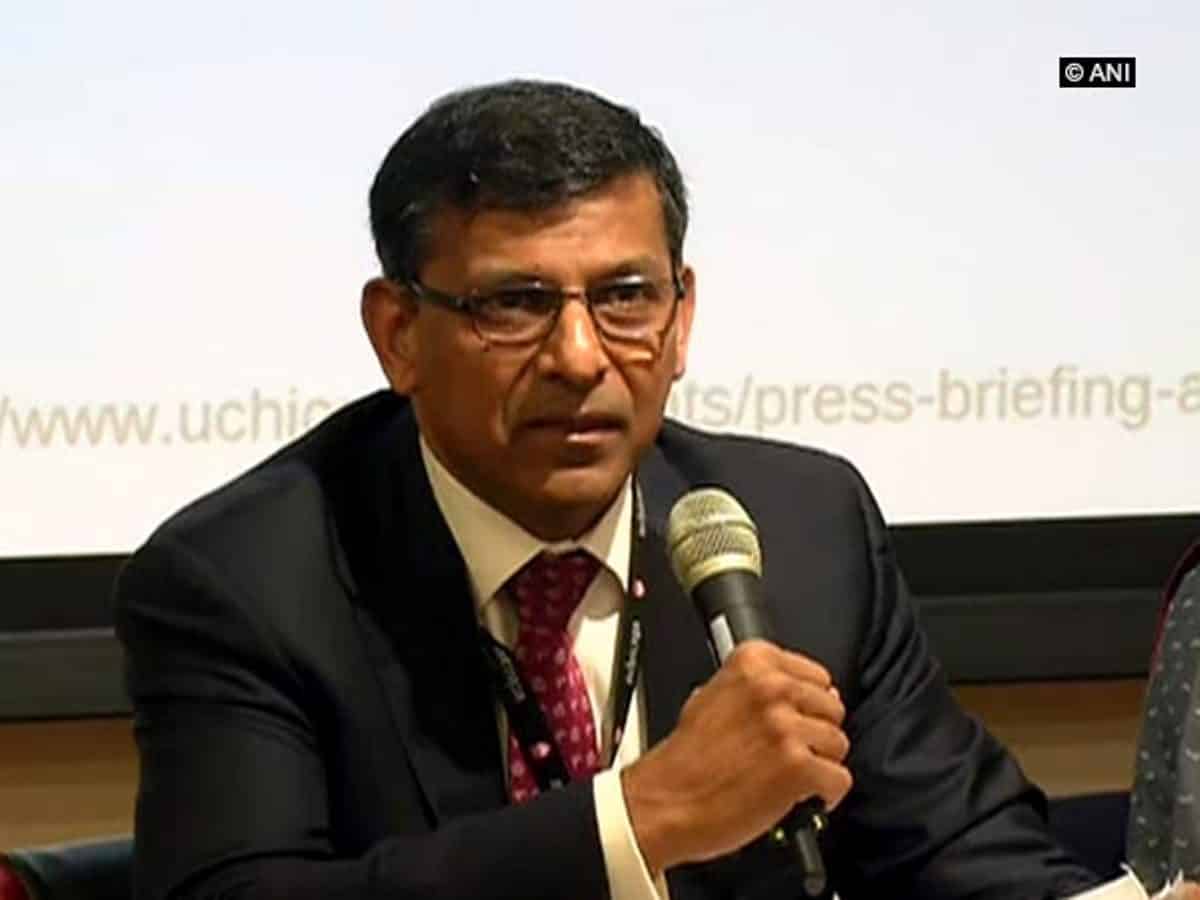
Hyderabad: Former Reserve Bank Governor Raghuram Rajan said India will still remain a lower middle country if the potential growth rate remains at 6 per cent annually without any rise in population by 2047 (Amrit Kaal) and will be reaching the end of the demographic dividend by then.
Speaking at a programme organised by Manthan here, the economist said if the country does not grow faster, it will grow older (demographically) before it gets richer, which means there is the burden of an aging population to deal with also at that point.
Rajan said the GDP growth in India for the past two quarters was in the region of 7.5 per cent and if one looks at the labor force participation, it is very low and when it comes to female participation, “it is the lowest in the G20”.
“India’s growth potential is today about 6 per cent a year, GDP growth. If you do the math, at 6 per cent a year, you double every 12 years and therefore in 24 years, we’ll be four times our per capita income.
Today, the per capita income in India, as you know, is just a little below $2,500 per person. Multiply by four, we get $10,000 per person So if you do the math, at our current rate of growth, you know, strong as it is highest in the G20, we don’t get rich but we stay lower middle income till 2047,” he said.
The former RBI chief said some southern states are growing with regards to population at below reproduction rate, in other words, the fertility rate has fallen below reproduction rate thus slowing the growth.
“In other words, we will start the process of aging at some point around that time, which leads to the alarming question if we don’t grow faster, we will grow old before we grow rich, which means we all have all the burdens of an aging population to deal with also at that point,” he opined.
According to him, the current pace of growth is not enough to employ all those who are entering the labour force and insufficient to make the country get richer, before it gets older.
Describing that Prime Minister Narendra Modi’s vision of 100 years of Independence by 2017 as “Amritsar Kaal”, he said it is going to be an ear of plenty.
Rajan said some of the developed nations moved from manufacturing to services as part of moving up the value chain after they became richer.
Those countries are largely services economies with 70 per cent of the workforce in rich countries, typically in the service industry and 20 per cent in manufacturing, five per cent each in construction and agriculture, he noted.



